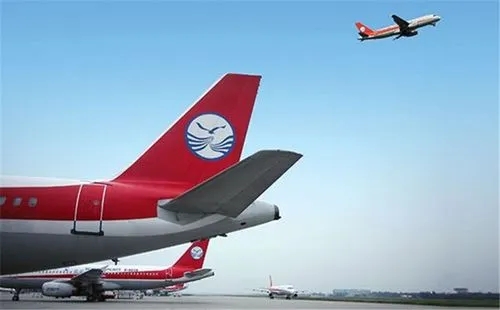物流,邮政,快递
1.物流是供应链活动的一部分。现代物流服务的核心目标是在物流全过程中以最小的综合成本来满足顾客的需求。

2.邮政,是由国家管理或直接经营寄递各类邮件(信件或物品)的事业。
邮政常被用于指代邮政局,中国邮政公司和邮寄信件的简称。中国邮政集团有限公司是一所国有独资公司,下辖中国邮政储蓄银行,中邮人寿保险股份有限公司和中国邮政速递物流股份有限公司,以邮政、快递物流、金融、电子商务等为主业。EMS指邮政特快专利服务,在中国大陆境内提供EMS服务的为中国邮政速递物流公司,是中国邮政集团公司直属全资公司。
3.快递又称速递或快运,是指物流企业(含货运代理) 通过自身的独立网络或以联营合作(即联网)的方式,将用户委托的文件或包裹,快捷而安全地从发件人送达收件人的门到门(手递手)的新型运输方式。广义上快递指任何物品的快递;狭义上快递专指商务文件和小件的紧急递送服务。从经济类别看,快递是物流产业的一个分支行业,快递研究属于物流学的范畴。如EMS,顺丰,中通,申通,京东物流等,都是我们平时常见的快递企业。
1. Logistics is a part of supply chain activities. The core objective of modern logistics services is to meet customer needs with minimum integrated cost in the whole process of logistics.
2. Post is a business that is managed or directly operated by the state to send all kinds of mail (letters or articles).
Postal is often used to refer to the Post Office, China Post Corporation and the abbreviation of mailing letters. China Post Group Co., Ltd. is a wholly state-owned company, under the jurisdiction of China Postal Savings Bank, China Post Life Insurance Co. It is a wholly owned company directly under China Post Group Corporation.
3. Express delivery, also known as courier or express delivery, refers to a new mode of transportation in which logistics enterprises (including freight forwarders) deliver documents or parcels entrusted by users from sender to recipient quickly and safely through their own independent networks or in the form of joint cooperation (i.e. networking). Express in a broad sense refers to the express delivery of any item; express in a narrow sense refers exclusively to business documents and small pieces of emergency delivery services. From the economic category, courier is a branch of the logistics industry, courier research belongs to the scope of logistics. Such as EMS, SF, China Unicom, Shentong, Jingdong Logistics, etc., are our usual common courier companies.
三者的区别及联系
物流是一个行业,邮政和快递属于物流行业。
物流的概念涵盖了快递,快递是物流的重要组成部分。
快递的服务对象主要为需要快递各种单据和单证的公司,单位等组织以及需要快递私人物品的个人。物流的服务对象主要为工厂,商贸企业等单位;快递公司主要运送文件类、个人物品类以及50千克以下的小批量货物,单位价格较高。物流公司主要运送大型物品、大批量货物,单位价格较低。
邮政物流是邮政推出的集仓储,加工,运输,配送和信息服务于一体的现代化综合性物流服务。
快递服务与邮政普遍服务业务的根本区别是两者属于不同社会性质的服务产品:一个姓公(社会提供的公共产品)、一个姓私(商家提供的私人产品)。
邮政普遍服务包括邮政对部分信函的专营是履行国家法定义务,以确保向所有公民提供基本通信需求的统一规范、低价普惠的普遍服务,属于公共产品性质。而快递服务(含邮政EMS特快专递)均以市场为前提,是市场经济发展的产物,主要为社会有特殊需求和有支付能力的部分成员(多为工商用户)提供个性化、限时送达商业服务,属于私人产品性质,属于竞争性商务服务产品。
Logistics is an industry, postal and courier belong to the logistics industry.
The concept of logistics covers courier, courier is an important part of logistics.
Express service objects are mainly companies, units and other organizations that need to express a variety of documents and documents, as well as individuals who need to express their personal belongings. Logistics services are mainly for factories, commercial enterprises and other units; courier companies mainly transport documents, personal items and small quantities of goods below 50 kg, the unit price is higher. Logistics companies mainly transport large items, large quantities of goods, the unit price is lower.
Postal logistics is a modern comprehensive logistics service integrating warehousing, processing, transportation, distribution and information service launched by the postal service.
The fundamental difference between express service and universal postal service is that they belong to different social nature of service products: one is public (public products provided by society) and the other is private (private products provided by businessmen).
Postal universal service, including the postal franchise for some letters, is to fulfill the state's legal obligations to ensure the provision of basic communication needs to all citizens of a unified standard, low-cost universal service, belongs to the nature of public goods. Express services (including EMS special delivery) are market-based, a product of the development of the market economy, mainly for members of society with special needs and the ability to pay (mostly industrial and commercial users) to provide personalized, time-limited delivery of commercial services, the nature of private products, belonging to the competitive business service products.




